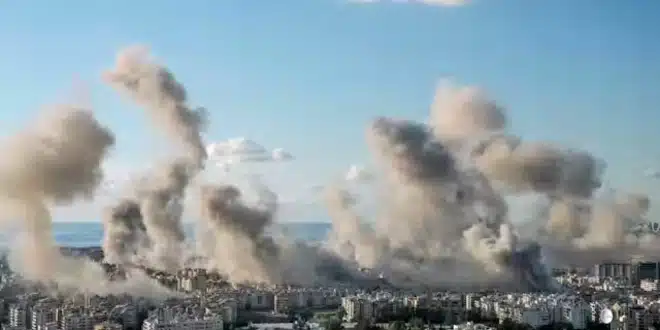The United States has responded to Lebanon’s recent policy paper with measured approval, according to a senior Lebanese official familiar with the discussions. While American officials have acknowledged the initiative’s constructive tone, they have emphasized the need for a firm and actionable timeline to address the issue of illegal arms across Lebanese territory.
Washington Pushes for Disarmament Deadline
In remarks shared with Asharq al-Awsat newspaper, the source revealed that the U.S. expects Lebanon to complete the disarmament process before the end of the current year. This effort includes empowering the Lebanese Armed Forces (LAF) and internal security agencies to fully assert their authority nationwide.
“The U.S. position is described as positive in tone but firm in substance,” the official explained. “They are urging Lebanon to present a clear and time-bound strategy for extending state control and removing unauthorized weapons.”
At the center of this discussion is the issue of Hezbollah’s arsenal—an enduring point of contention in Lebanese politics and in U.S.-Lebanon relations. Washington reportedly recognizes the political sensitivities involved and has expressed understanding for the need to address the matter through internal consensus.
However, the American administration believes the grace period already afforded to Beirut—exceeding six months—is more than adequate to initiate tangible steps. The expectation is that Lebanon will no longer delay.
Lebanese Demands: Border Issues and Security Guarantees
While preparing to respond to Washington’s call for disarmament, Lebanon is also presenting its own set of demands. According to the same official, Lebanese authorities intend to request formal U.S. guarantees on several national security and sovereignty matters.
These demands include:
- The withdrawal of Israeli forces from five disputed points in southern Lebanon, which were occupied during the most recent military confrontation.
- A final agreement on border demarcation with Israeli-held territory.
- The release of Lebanese detainees currently held by Israel.
- A structured and time-bound plan for rebuilding areas devastated during recent hostilities.
Lebanon is also expected to request a halt to Israeli air, land, and sea operations against its territory, in addition to an end to what it describes as targeted assassinations of Lebanese citizens, particularly those affiliated with Hezbollah.
A Diplomatic Standoff with Regional Stakes
The exchange between Beirut and Washington comes at a time of heightened tension both domestically and regionally. Hezbollah’s armed presence remains a deeply divisive issue within Lebanon—supported by some as a resistance force against Israel, and criticized by others as a destabilizing militia operating outside state authority.
The Lebanese government, caught between international pressure and domestic political complexity, is attempting to strike a balance that maintains internal stability while addressing growing calls for national sovereignty and rule of law.
As the end-of-year deadline approaches, Lebanon now faces the challenge of demonstrating credible progress, not only to meet U.S. expectations but also to maintain diplomatic credibility on the global stage. Whether internal consensus can be reached in time remains uncertain.


